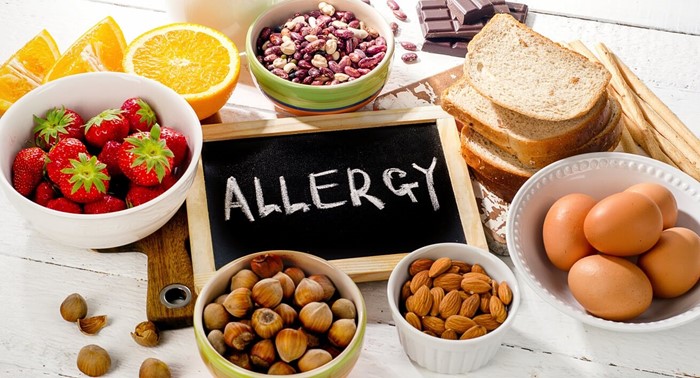Research published on the 22nd March 2021, from the Food Standards Agency (FSA) has found that food businesses’ handling of allergens has significantly improved since new regulations came into force in 2014.
The regulations made it mandatory to provide information to consumers about the presence of 14 allergenic ingredients in food.
The fourteen allergens
The 14 allergens are:
- Celery and products thereof
- Cereals containing gluten namely wheat (including rye, barley, oats and their hybridised strains and products thereof)
- Crustaceans (such as prawns, crabs, lobsters and crayfish)
- Eggs and products thereof
- Fish and products thereof
- Lupin and products thereof
- Milk and products thereof (including lactose)
- Molluscs and products thereof (for example mussels, clams, oysters, scallops, snails and squid)
- Mustard and products thereof
- Peanuts and products thereof
- Sesame seeds and products thereof
- Soybeans and products thereof
- Sulphur dioxide and sulphites (preservatives)
- Tree nuts (namely almond, hazelnut, walnut, Brazil nut, cashew, pecan, pistachio and Macadamia nut)
Allergen labelling policies
95% of food businesses said they have a written or informal policy on allergen labelling. This is up from 60% in 2012. This includes a large majority of market traders. One other major improvement was that the above allergens would be highlighted in bold for consumers to easily view.
The businesses who were better at checking allergenic ingredients had processes in place to check if a product contains allergenic ingredients. Nearly nine in ten food businesses also check or audit the ingredients they obtain from suppliers and wholesalers.
More training for staff
Half of food businesses had undertaken formal training on food allergens. Almost all food business operators provided staff with allergen information, most commonly through verbal training.
Future changes
There are changes to look out for this year on this issue. In October 2021, Natasha’s Law will be coming into force. This will require businesses to provide allergen labelling on prepacked for direct sale (PPDS) food.
PPDS food is food that has been packed before being offered for sale on the same premises. Some of the most common examples of this type of food or sandwiches or salads.
This change is a result of a UK wide review following the death of teenager Natasha Ednan-Laperouse. Her death was caused by an allergic reaction from a PPDS baguette which did not require allergen labelling.
The FSA launched a ‘one year to go’ campaign in October 2020 to highlight the PPDS changes to businesses. The campaign encouraged employers to check what they need to do to prepare. Over the next few months, they’ll be working closely with businesses to make sure they are all ready for the changes.
Non-prepacked food
Individuals who are not food businesses, for example those who occasionally provide food at charity events or voluntary cake sales, do not need to follow these requirements. If you are a charity or community food provider and unsure whether you should be registered as a food business, you can speak to your local authority’s environmental health department. Or the FSA for full details.
Expert support on food safety
If you serve food on-site, in any capacity, then food safety should be a concern. Whether you are a small, medium, or large business, we can support you. Whether you work in the food industry or not, we can provide advice tailored to you.
Speak to one of our expert team today for health & safety advice on 01455 858 132.

